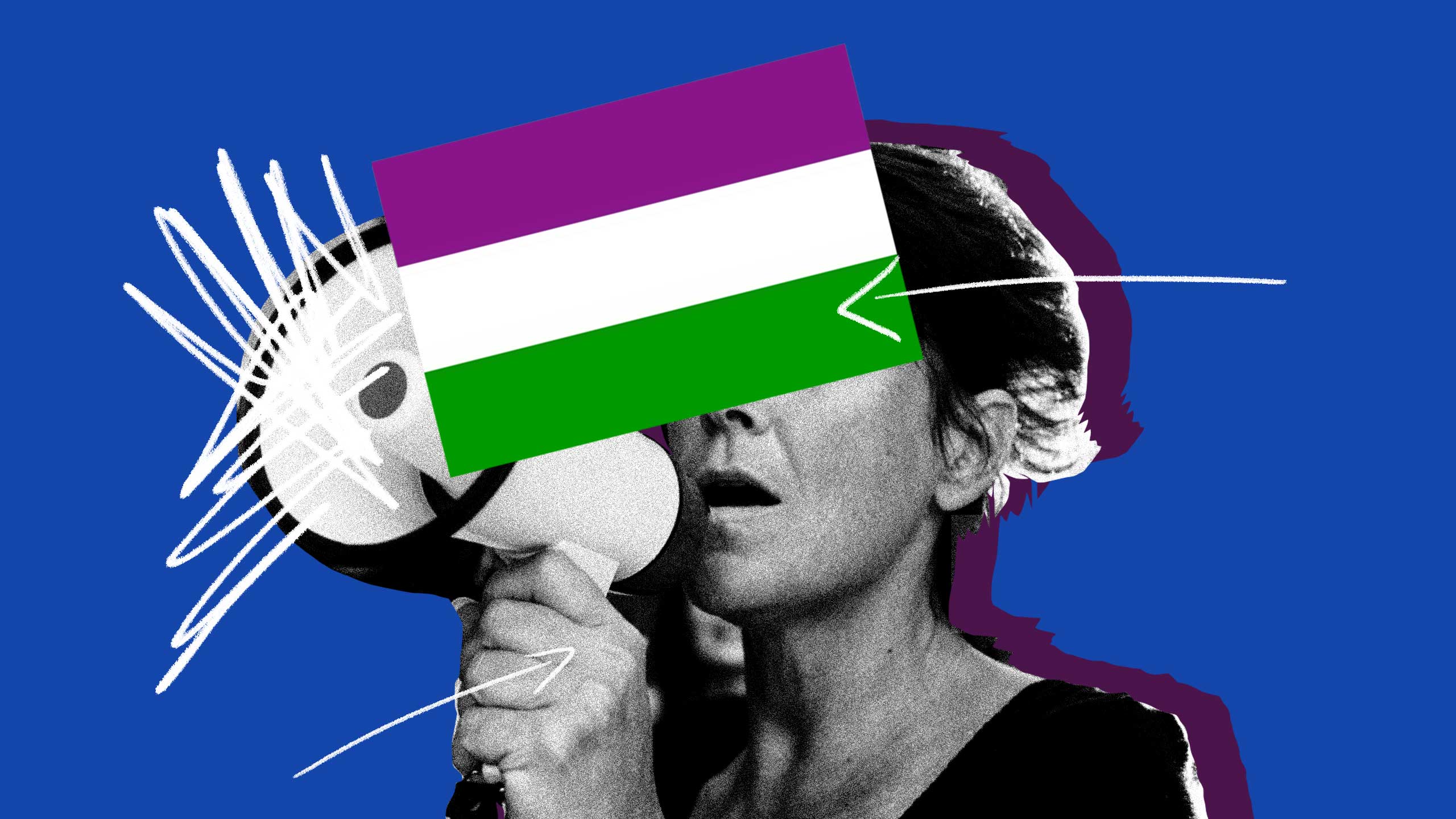Anti-trans activists are worming their way into society at an alarming rate.
Frequently referred to as trans-exclusionary radical feminists (TERFs), these groups operate under the guise of protecting cis women. They are increasingly finding platforms in the U.K., Canada and the United States—and they’re getting sneaky about it.
Take the new non-profit group “Women Matter Canada.” The name might seem innocuous—we all love women, right? But it hides a wave of dangerous transphobic ideas and rhetoric built off of years of transphobia and misogyny. And yet, sitting MPs and hopeful federal candidates are among the few hundred followers of the fledgling group on social media.
The mainstreaming of anti-trans rhetoric in so-called “feminism” is nothing new. J.K. Rowling’s been spouting transphobic screed for years under the guise of “protecting women’s rights,” and transphobic organizations like Vancouver Rape Relief have made headlines for their exclusionary stances.
I’m not here to explain how or why TERFs are wrong. But with a federal election happening in Canada, groups like Women Matter Canada are going to be trying to sway your opinions—and the opinions of the people you’re voting for. In fact, VoteCompass tracker hosted on the CBC identified trans rights as one of 30 key issues people could be voting on. The tracker asks whether prospective voters agree with the following statement: “Canada’s human rights laws should require that transgender people be referred to by their chosen gender pronouns.”
Sometimes it can be hard to realize your candidate’s true agenda until it’s too late. With that in mind, here are some things to watch out for to help you identify if that so-called women’s group or queer group is actually full of transphobic nonsense.
Colours
Purple, green and white
For a lot of incredibly online folks across the LGBTQ2S+ spectrum, coloured heart emojis in social media bios or posts are often the norm. Until we have an emoji for every identity, we have to make do—whether you’re a non-binary person like me throwing yellow, purple, black and white hearts around, or a pansexual embracing the pink, yellow and blue.
So when you see purple, green and white together, you might immediately associate it with some sort of queer or gender terminology. (In fact, the colours made up the genderqueer flag long before they were consistently used by transphobic women’s groups.) But just as they ruined any positive associations we have with a certain bespectacled wizard, anti-trans activists ruined these colours, too.
The purple, green and white flag is associated with the women’s suffrage movement in the United Kingdom and has become a rallying flag for a specific brand of anti-trans so-called “feminism.” If a website or third-party group really seems to be leaning into the colour palette, you might want to give them pause.
Phrases
There are a few common phrase and terms that will turn you on to whether that so-called feminist or queer group is inclusive of trans folks or not. Here are a few of the big hitters, and what they really mean.
“Gender critical.” If a self-described feminist says they’re gender critical, they’re anti-trans. It’s an argument that gender identity is made up, but “biological sex” is material and real. Anti-trans groups argue that even the idea of a gender identity is a threat to women and their rights. Obviously this is not true. Anti-trans folks who think “TERF” is a slur (they’re out there) use this phrase to describe themselves to avoid explicitly identifying as trans-exclusionary, even though they are.
“Sex-based rights.” Anti-trans activists will often use this phrase to suggest that trans people pose a threat to these rights and are therefore anti-feminist. This is a way of separating the rights that cis women have from those of trans women, without straight-up saying they’re transphobic.
“Male-bodied.” This is an incredibly transphobic and inaccurate way that anti-trans activists will describe trans women.
“LGB.” This one is pretty self-explanatory: if a group is really, really insisting on not including a specific letter of the acronym (like the U.K.’s LGB Alliance), there’s a big ol’ transphobic reason for that. And, sure enough, the aforementioned group’s topline includes references to the phrases above, along with a follow from the world’s most famous transphobe, J.K. Rowling.
Legislation
Bill C-16
And finally, a homegrown Canadian example to keep an eye out for over the next few weeks.
During the election, watch out for any talk of repealing, replacing or working around the landmark legislation from 2017, which added the phrase “gender identity or expression” to several key pieces of Canadian human rights law.
The Bill C-16 enshrined trans and otherwise gender-diverse Canadians as an identifiable group protected from discrimination, and added sections to the Criminal Code that address hate speech and hate crimes related to gender identity and expression.
Critics of the bill, however, have suggested that protecting trans folks’ rights is a threat to free speech. Right-wing candidates, including Peoples Party of Canada leader Maxime Bernier, have pushed for the abolishment of Bill C-16 in the past; during the last election, he called the bill a “threat to freedom of speech.” And that “Women Matter Canada” group I mentioned at the start? They have a whole section on Bill C-16 on their website, where they argue that it has “eroded women’s rights as a biological sex.”
If history is any indication, where there’s debate around C-16, there’s likely some anti-trans sentiments to follow.


 Why you can trust Xtra
Why you can trust Xtra


